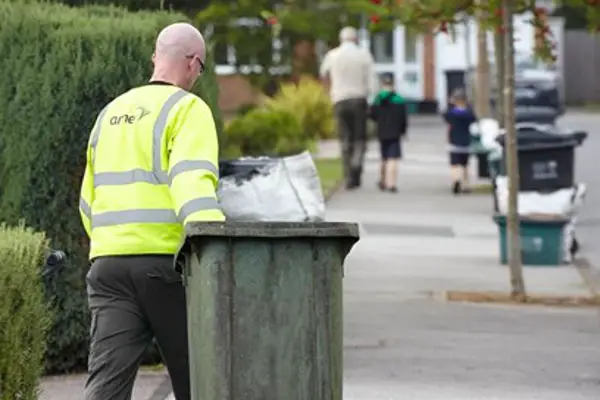The council share this latest news. Ed
Are you one of our rotten recycling rascals, putting the wrong thing in wrong bin or gull sack?
The Isle of Wight Council is asking for your help in improving the quality of recycling on the kerbside and is launching a social media campaign to support you in making sure the right things is put in the right bin/ gull sack. This will support the resident’s information booklet that went out earlier this year, which has advice and information about your recycling collection.
Raising recycling quality by cutting contamination levels in recycling receptacles collected at the kerbside can generate valuable benefits, not just for local authorities but for us all, as ratepayers too.
Why you should recycle
Incorrect (i.e. non-recyclable or non-targeted) materials included in boxes, sacks or bins set out by householders for recycling results in:
- an increase in collection, sorting and reprocessing costs;
- a reduction in the quality and quantity of materials destined for recycling; and
- lower revenues for local authorities to use on essential services, as a result of paying increased landfill charges to dispose of contaminated recycling.
Recent examples of non-recyclable items to be found in green bins/ gull sacks on the Island include oil cans, paint tins, black bags of rubbish, veg peelings, cushions, duvets, uneaten pizzas and even dead chicks.
What to separate
Please remember to separate:
- Plastic / Glass / Metals (clean) go into the big green bin, green gull sack or mixed recycling communal bin.
- Paper, magazines and card go into the insert box, blue gull sack or paper/card communal bin.
- Textiles and shoes go into a bag alongside (not in) your recycling bin/bags. Please make sure the items are not in a black bag, as it could be confused for black bag waste.
- Food waste goes in the food caddy.
- Excess recycling will be taken as long as it is separated as above and in clear or white bags / tidy bundles of card alongside your recycling bin/bags. Any excess paper/card must be kept separate from other items. Large amounts of cardboard can be bundled together.
Incorrect items in recycling cause problems
The Isle of Wight Cabinet member for procurement, waste management, special projects and forward planning, Councillor Michael Murwill, said:
“Contamination describes items not belonging in the recycling bin/ gull sack. When incorrect items are included in the recycling it can cause a number of problems, including causing a halt in operations at recycling processing plants.
“Unwashed or oily food packaging can contaminate an entire load of recycling, resulting in needing to divert the load to costly landfill. These problems can result in higher processing costs for the Island and an increase in solid waste tonnage.”
Amey manager for the Isle of Wight, Paul Southall, said:
“A new bin hanger, which tells homeowners their bin is contaminated is being introduced as part of the contamination campaign and contains images of the most commonly placed wrong items in bins or gull proof sacks, such as food, polystyrene, wood, contaminated food packaging and garden waste, with directions on where they should go.
“Any recycling bin or green gull proof sack found to have items that cannot be collected as part of the recycling service will not be emptied by collection crews.”
Waste has huge negative impact on environment
Recycling correctly is really important as waste has a huge negative impact on the natural environment. Harmful chemicals and greenhouse gasses are released from rubbish in landfill sites as oxygen is unable to break down the waste, even if it is food, when it is buried.
The home recycling collection system can handle only items that can be reliably sold to buyers for use in new products, so as a result, items that can’t easily be processed on existing machinery or things that are contaminated with food or other substances should stay out of your home recycling bin.
How to recycle correctly
The social media campaign will give information how to recycle correctly, what happens to your recycling and why it is so important to make sure you put the ‘right thing in the bin’ and avoid having your recycling bin or green gull proof sack not emptied due to contamination on your collection day.
So keep your eye out for our daily top tips, facts and info on what goes where, why and what happens to your recycling afterwards, over the coming months, beginning in July.
Image: © Recyling Waste World





